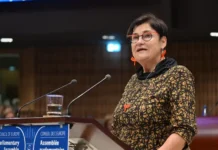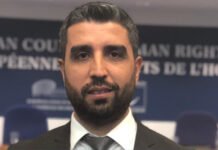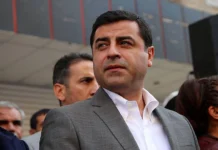The German Federal Foreign Office has called on the Turkish government to immediately release its political prisoners, some of whom are in jail despite rulings from the European Court of Human Rights, starting with Kurdish politician Selahattin Demirtaş and businessman Osman Kavala, Turkish Minute reported on Thursday, citing Deutsche Welle (DW) Turkish service.
The office shared its comments with DW on a human rights action plan recently unveiled by Turkish President Recep Tayyip Erdoğan, which received little appreciation due to the government’s poor record on human rights, saying the country should immediately release thousands of intellectuals, politicians and journalists currently behind bars.
In the aftermath of a failed coup attempt in Turkey on July 15, 2016, Erdoğan launched a massive crackdown on non-loyalist citizens under the pretext of an anti-coup fight, which led to the prosecution of tens of thousands of people on trumped-up terrorism or coup charges.
The human rights action plan, which comes at a time when the ruling Justice and Development Party (AKP) is the subject of harsh criticism due to gross human rights violations, prompted widespread skepticism and even ridicule on social media.
German Green MP Cem Özdemir also told DW that Erdoğan might “delude” the German foreign minister and some other members of the federal government with the action plan.
“But the new government of Germany, which will come into office following the Sept. 26 elections, will mainly take into consideration the concrete steps taken by the Turkish government regarding human rights issues before forming close relations with them,” Özdemir said.
“He [Erdoğan] should realize that he will not be able to impress anyone in Berlin in the [near] future,” he added, indicating that the new German government must demand, along with US’s Biden-Harris administration and other European leaders, that Turkey respect European Court of Human Rights rulings.
Özlem Alev Demirel, a German member of the European Parliament, defined the action plan unveiled by Erdoğan as “an attempt to mislead public opinion in Turkey and the world.”
Demirel reminded that Erdoğan had made similar promises before, but the country’s track record on issues such as human rights and judicial independence changed only for the worse.
“Let’s see if Erdoğan’s so-called reforms please the EU and European investors. If they do, it means the EU’s geostrategic and economic interests have outweighed its citizens’ demand for democracy [in Turkey],” she added.















